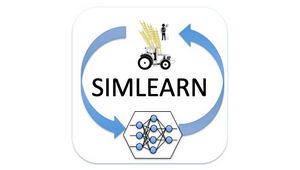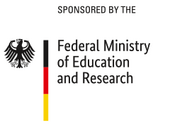Machine learning methods based on existing training data have proven to be very effective in identifying patterns and implicit dependencies even in complex situations with many parameters and in providing correct classifications, predictions or decision aids with the models learned. In practice, however, the large amounts of correctly labeled training data required for such approaches are often not available.
Based on actual application examples from the agricultural sector, SimLearn examines the suitability of a new approach in which existing operative knowledge codified in simulation models is combined iteratively with the increasing insights of learned models: Extensive synthetic training data sets are generated by existing simulation models. A learning system initiated on such data then extended and improved by the (few) data collected in the respective application environment fo an actual farm. This combination fills gaps in the existing database and enables improved training. The result is a learned, more powerful model of the observed reality with correspondingly better usage potentials.
SimLearn exemplarily considers the operational decisions in grain cultivation on an operational and tactical level with regard to income and environmental effects. Calculation models of the University of Hohenheim allow initial simulations of the effects of fertilisation and cultivation decisions both from a biological (plant growth) and an economic (realisable profit) point of view. This information is combined and compared with the results of cooperating experimental farms and with standard and average values from the databases of the Kuratorium für Technologie und Bauwesen in der Landwirtschaft (KTBL). Using those generated data collections, DFKI iteratively trains a suitable learning system which enables an improved prognosis and evaluation of alternative courses of action.
Partners
Deutsches Forschungszentrum für Künstliche Intelligenz GmbH – DFKI / FB Smarte Daten und Wissensdienste – Prof. Dr. Andreas Dengel
Kuratorium für Technik und Bauwesen in der Landwirtschaft e.V. – KTBL
Universität Hohenheim / Fg Ökonomik der Landnutzung - Prof. Dr. Thomas Berger / Fg Biogeophysik - Prof. Dr. Thilo Streck


